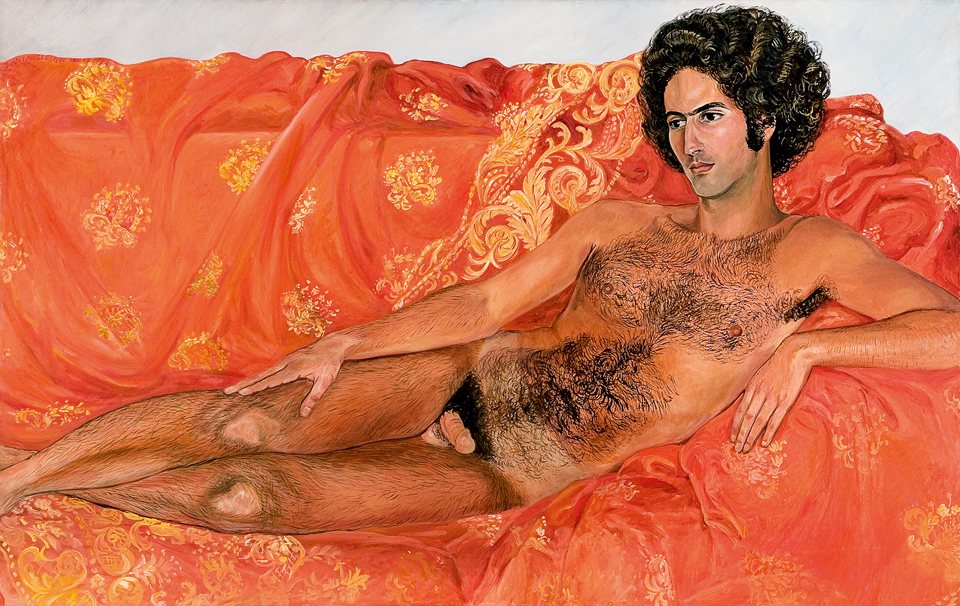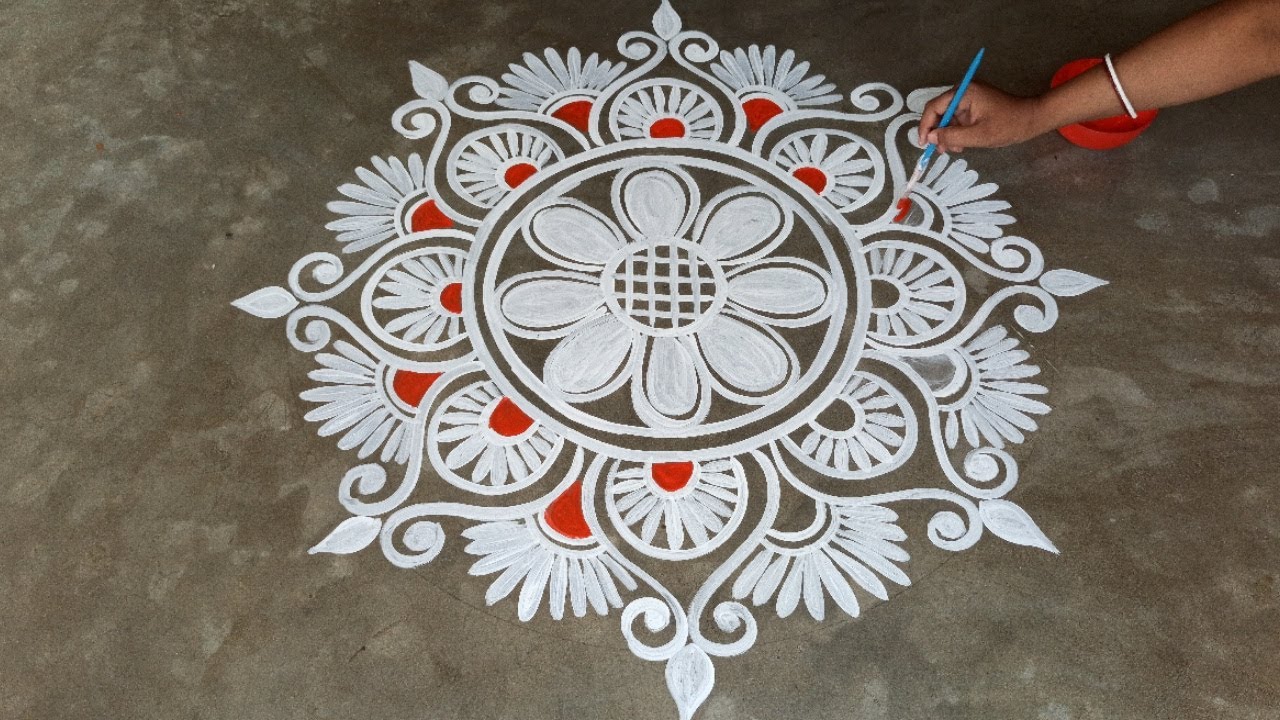Last year on the 17th of December, a group of women from all across the world met on the terrace of a non-descript building in Bangalore to discuss feminism in their own sense – and then drew it onto their bodies with mehendi.
The organiser, artist and activist Frauke Frech, brought women from different cultural and professional backgrounds together to take part in a collective process – to ask each of them what it meant for them to be a woman. “For a long time, I knew nothing about India but what travellers and friends told me or what I’d heard about the “oppressive” situation of Indian women in Western media. When I fell in love with an Indian last year, I felt the need to personally exchange about different gender concepts in Europe and India. During the 2-month BangaloREsidency program of Goethe-Institut with the activists of Blank Noise I got the opportunity to find out more about the real situation,” she said.
Thus was borne “Mehendi – No Lifelong Commitment, No Artistic Skills Required“. The multicultural group of women each drew what they felt about being a woman onto their body using mehendi. What resulted was a strikingly powerful photoshoot by Madhumita Nandi, accompanied by the participants’ own words on the issue.
“We learned about similarities and differences between us and want to share these insights with you. Because it is time to speak up, to show our own perspectives, instead of accepting that others do so for us,” said Frech.
1. Beti
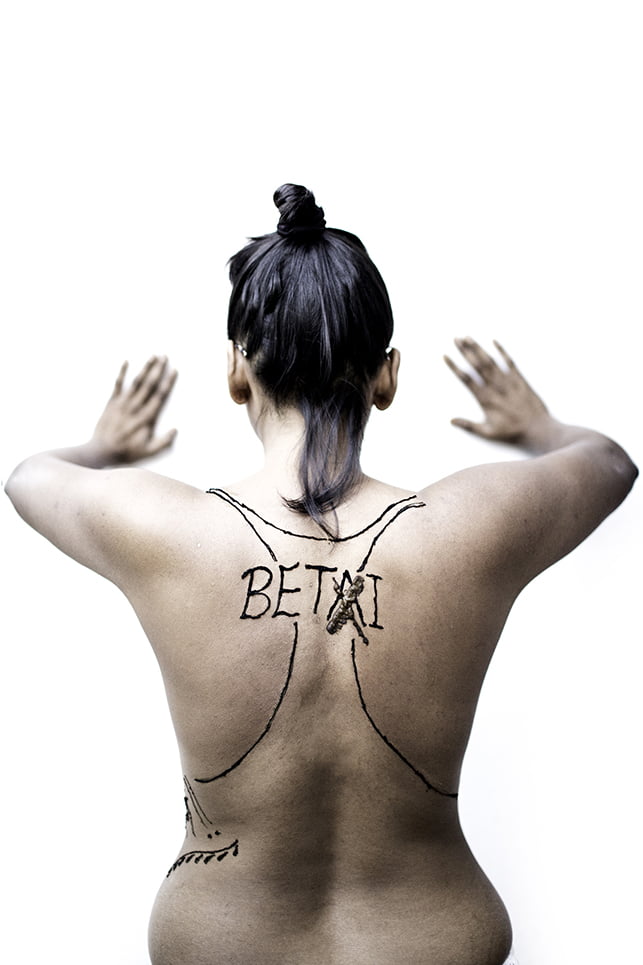
“The Indian society’s obsession with sons is a complex social evil. It has led to killing and exploitation of daughters. If a daughter (Beti) is strong, independent, intelligent, parents often refer to her as their son (Beta),” said the author/artist.
2. My Body Is Not Responsible For Your Thoughts
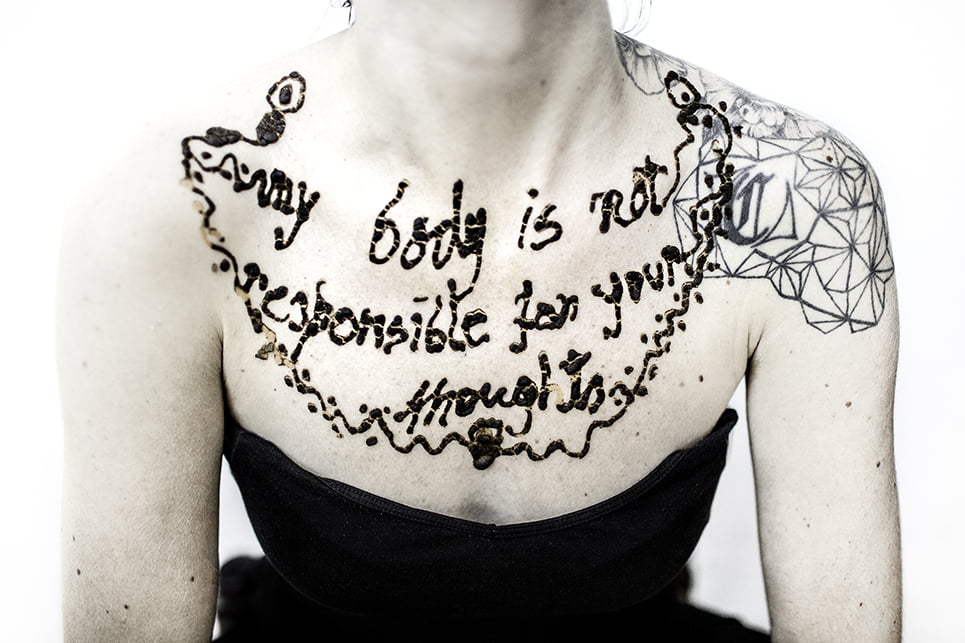
“Ever since I was little, I was taught there is something dangerous and wrong about my body. Even more as a female, I discovered I had to be ashamed, I had to cover myself, to move, walk or sit in certain ways. Even when there was no sexual thought in my mind – it was too early for that – I knew I had to control some inherent properties of my body, which would raise sin in me, or in the people around me. Today, as a woman, I fight this mentality every day. My body has no guilt, it is not responsible for other people’s thoughts, nor for their actions. It is time for everyone to take responsibility for who s/he chooses to be, for thoughts and actions. Our skin is innocent,” said the author/artist.
3. Log Kya Kahenge/ What Will People Say?
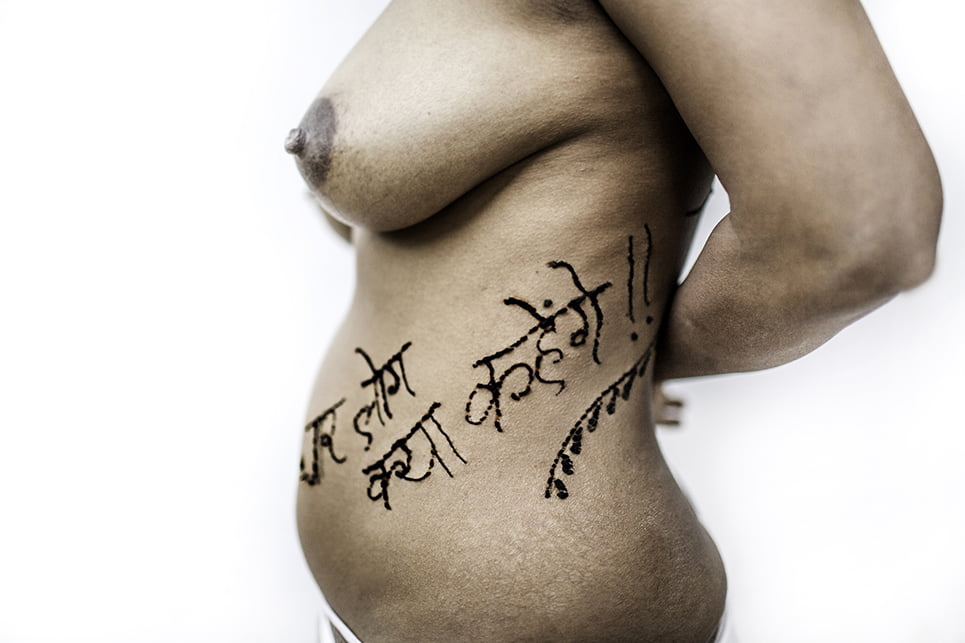
“Women’s freedom is curtailed as everyone around them, including loved ones, worries about the outdated morality society dictates. This means that women are always second-guessing their every feeling, thought, and action. The fear of disapproval from people who don’t treat women as humans leads to generations of suffocated women,” said the author/artist.
4. I Am A Slut Stud
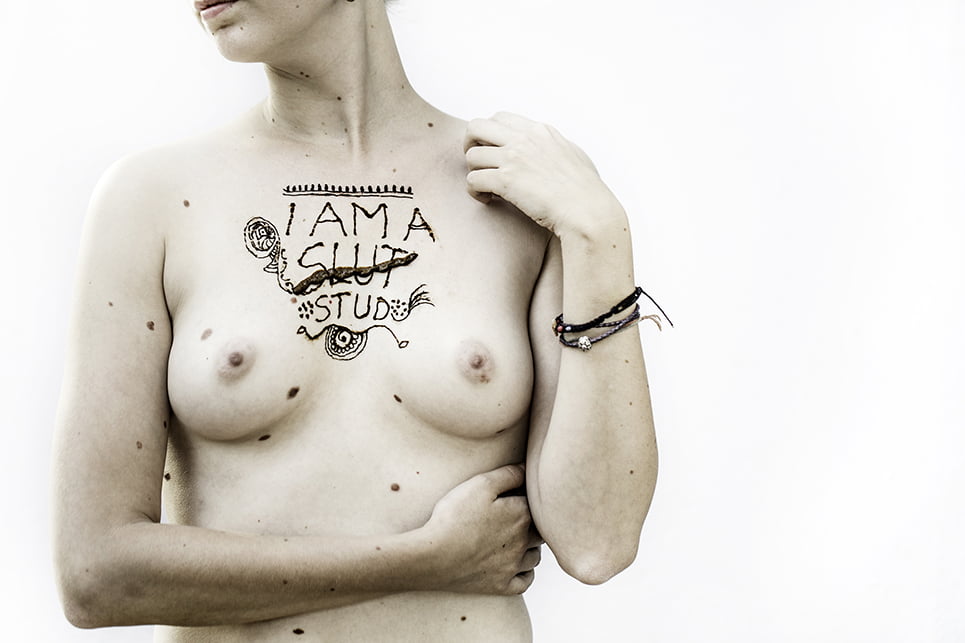
“When a woman sleeps with multiple people she is considered a slut, when a man does the exact same thing he is considered a stud and gets complimented by his peers. Women will be slut-shamed by their peers – not just by men, but also by other women. This idea needs to be broken, I feel. Every-one should have the right to love who they want and if there is enough space for more than one person, no one should judge that but the people involved in those relationships. The world needs more love nowadays, not less. So I hope we can all stop judging what we don’t know and let everyone have the freedom to spread the love they have to give,” said the author/artist.
5. Let My Body Be
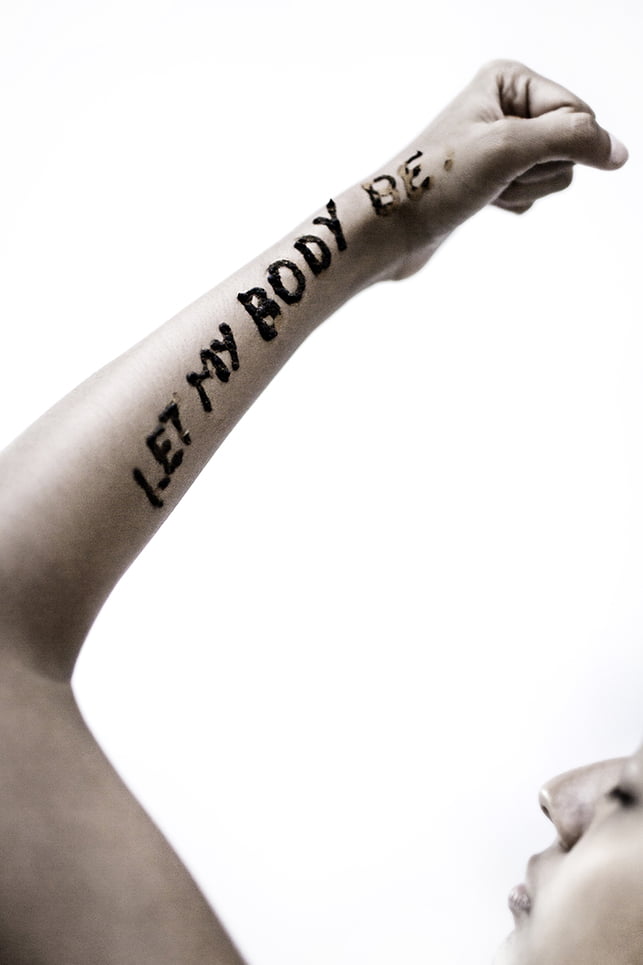
“From the tiny mole next to my nose, to my glorious buck teeth, it’s hard not to wish yourself a little prettier some days. Maybe my nose could be smaller, or perhaps my hair a little silkier. Let my body be is about accepting every pore on my skin, lumpy or discoloured, flaky or smooth. No matter what people say, I will learn to love my body, in its skin, in its design. I promise to myself to never let anyone make me believe otherwise. That’s an everyday practice, and the only thing that needs to be perfected,” said the author/artist.
Also Read: Aravani Art Project: Inclusivity and Art With The Transgender Community
All photos by Madhumita Nandi.
The organizer Frauke Frech would like to thank the participants Irene, Shruthi, Toni, Priya, Chiara, Durga, Jasmeen, Chitra, Ines, Madhumita, Vira, Eeshita, Esther, Bidisha, Katerina, Kat for their honesty, their contribution and for creating this body of art together.
The statements by the participating women were compiled by Frauke Frech in agreement with the participants.
About the author(s)
Feminism In India is an award-winning digital intersectional feminist media organisation to learn, educate and develop a feminist sensibility and unravel the F-word among the youth in India.

